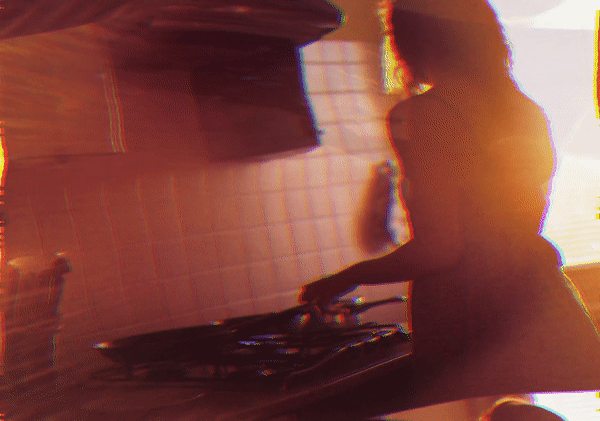
Medications like prescription drugs can be lifesaving and account for a large percentage of health care spending, but they can also carry risks that may outweigh the benefits. Not only do they cost money, but they can cause serious side effects.
A study showed that a healthy lifestyle free of smoking and excess weight reduced the chances of suffering chronic illnesses by about 80%. Participants were less likely to suffer from heart disease, type 2 diabetes, and depression. This research shows that it is possible to stay healthy without medication by practicing good health habits.
Follow the below guide, and you can be sure to stay healthy without depending on medications.

How to Stay Healthy Without Medication
1. Contrast Shower Every Day
A contrast shower involves the quick changing of water temperature when showering. You simply alternate the water temperature from hot to cold and then back again, in quick succession. Start from hot, go to cold, and then go to hot again. Do this a few times, and you will enjoy the below benefits that are guaranteed to keep you healthy and medication-free.
Boost to Immune System
Studies show that the contrast between hot and cold water increases the production of white blood cells and disease-fighting immune cells, especially monocytes. Taking a contrast shower can help prevent common colds and flu.
Stress Management
Contrast showering can help the adrenal glands better handle stress. The sudden shift from warm to cold can even increase energy levels. When your energy levels are high, you are better prepared to handle stress.
Improved Blood Circulation
A contrast shower improves blood circulation by increasing the production of lymphocytes and monocytes, two types of white blood cells. It has been shown to enhance the recovery of muscle injuries and can even promote weight loss.
Depression Control
A contrast shower can relieve depression and boost the flow of blood to the brain. The cold water temperature triggers the release of endorphins, also known as norepinephrine. The endorphins decrease feelings of pain and promote a sense of well-being. In addition to that, a contrast shower increases the flow of oxygen and nutrients to the brain and other vital organs.
2. No Fried Food
Fried food has few nutritional values and is high in calories, fat, and sodium, leading to obesity and other health problems. Food that is fried clogs arteries, causing heart attacks and strokes. Most frying oils contain hydrogenated oil, which raises cholesterol and increases the risk of heart disease. Some fried foods are also toxic to the brain. Below are some more dangers of fried food.
Fried Food Is Addictive
In addition to adverse health effects, fried food is also highly addictive. You can’t resist the crunchy and crispy feel of fried foods, but you must avoid eating them too often. Studies have shown that women who ate fried chicken daily, for example, were 13% more likely to die prematurely and from heart-related causes.
Fried Food Can Cause Heart Diseases
A diet that is heavy in fried food can lead to high blood pressure and heart disease. Researchers studied the relationship between fried food consumption and major cardiovascular events, and they found that eating fried foods increases the risk of diabetes and heart diseases. Deep frying, for example, deprives the food of nutrients, which makes it unhealthy to consume. You should do your best to avoid a greasy diet and eat plenty of fresh fruit and vegetables. By avoiding fried food, you can stay healthier.

3. Go On 1-Hour Walks Every Day
Walking increases blood circulation throughout the body and the brain and calms your nervous system. The more you walk, the better off you will be. Start slowly and aim to walk for at least an hour a day. If you haven’t been exercising regularly, start by walking for only five minutes a day. Then, increase the amount of time that you spend walking by five minutes a week. Eventually, you’ll want to be able to get 60 minutes of walking on most days. It’s good to keep a record of how far you walk on a daily basis. Some of the benefits that you will enjoy are below.
Lower Risk of Heart Diseases
Walking lowers blood pressure and strengthens your heart. For example, research has shown that postmenopausal women who walk for 30 minutes daily for 24 weeks reduce their risk of a stroke by 20%. If you want to improve your fitness, you can add more walking to your daily regimen.
Walking Promotes Healthy Blood Sugar Levels
Walking for an hour a day can help you lower your blood sugar. In fact, walking has been shown to reduce the overall risk of diabetes and lower the risk of developing type 2 diabetes. Even better, walking requires no special equipment or training. You do not need to do it for long or vigorously. One hour is ideal, but even a few minutes of walking a day is good for you.

4. Work-Life Balance
While your job might be enjoyable, it can lead to fatigue, affecting your health and forcing you to rely on prescription drugs. So, instead of waiting until your work pushes you to use medication, why not strike a balance that keeps you healthy?
It is important to remember that work-life balance isn’t a myth. You can have a successful career without neglecting your personal life. To achieve a healthy work-life balance, find a way to manage your time to always be productive without compromising your health.
Of course, there is no denying that often, it can be challenging to achieve a healthy work-life balance, especially if you’re dealing with strict work deadlines. The solution, in such circumstances, is avoiding scheduling things back-to-back and trying not to overcommit.
5. Be Socially Connected
Staying socially connected is one healthy hack that you need to put into practice immediately. It doesn’t mean that you need to be popular. It all comes down to enjoying the company of other people. You’ll feel better and be more energetic when you have a network of healthy relationships.
The bonds allow you to cope with difficult times and get the support you need. Furthermore, being socially connected can reduce stress. As a result, your health will improve, eliminating the need for medication. It’s not necessary to have a massive social circle. A simple, strong network of friends or family can help you stay healthy.
6. Help Others
Helping others has been found to be one of the best ways to stay healthy without medication. It is a gesture that entails prioritizing others’ needs before yours. It does not need to be complicated. An act as simple as giving up your seat in the train to a fellow passenger whom you feel deserves it will go a long way in keeping you healthy. You always get a nice feeling when you extend an act of kindness to others, and it is often the small gestures you do for others that count the most.
Some of the things you can do are volunteering in your local communities, checking on a lonely neighbor, using your expertise to mentor others, helping children with school activities, and sharing skills with friends and family.
7. Stay True to Yourself
Staying true to yourself is the most common method to keep healthy and fit. It brings a sense of joy, great spirit, and trust into your life. The key is to find ways to push yourself beyond your comfort zone. For example, you can start cooking more at home and eating healthier dishes. Below are a few other things you can do to be true to yourself.
Create Time for Yourself
Spend time each day pursuing hobbies, taking a walk, or doing something fun. Set aside time for meaningful relationships, ask for help when needed, and take care of yourself by getting enough rest and food. If you feel stressed, make sure to get the support you need.
Keep a Journal
Journaling is an excellent way to learn about yourself. You will feel more confident and relaxed if you write down what makes you anxious or depressed. Once you’re writing about your feelings, you’ll feel much better.

Final Thoughts
The only reason that you should take medication is if you need to treat properly diagnosed ailments. Otherwise, you should try as much as possible to discourage the idea that you can rely on medications to stay healthy. Don’t be misled by the proliferation of prescriptions that promise to keep you healthy because taking these drugs may have side effects that cause you long-term harm. Keep things simple. Apply this guide to your daily routine, and soon, your body will be less reliant on medication, setting you free to stay healthy without incurring unnecessary expenses on medication. Of course, some illnesses will require that you get medical help, so make a point of consulting your doctor whenever your body experiences issues that may seem out of the norm.

















